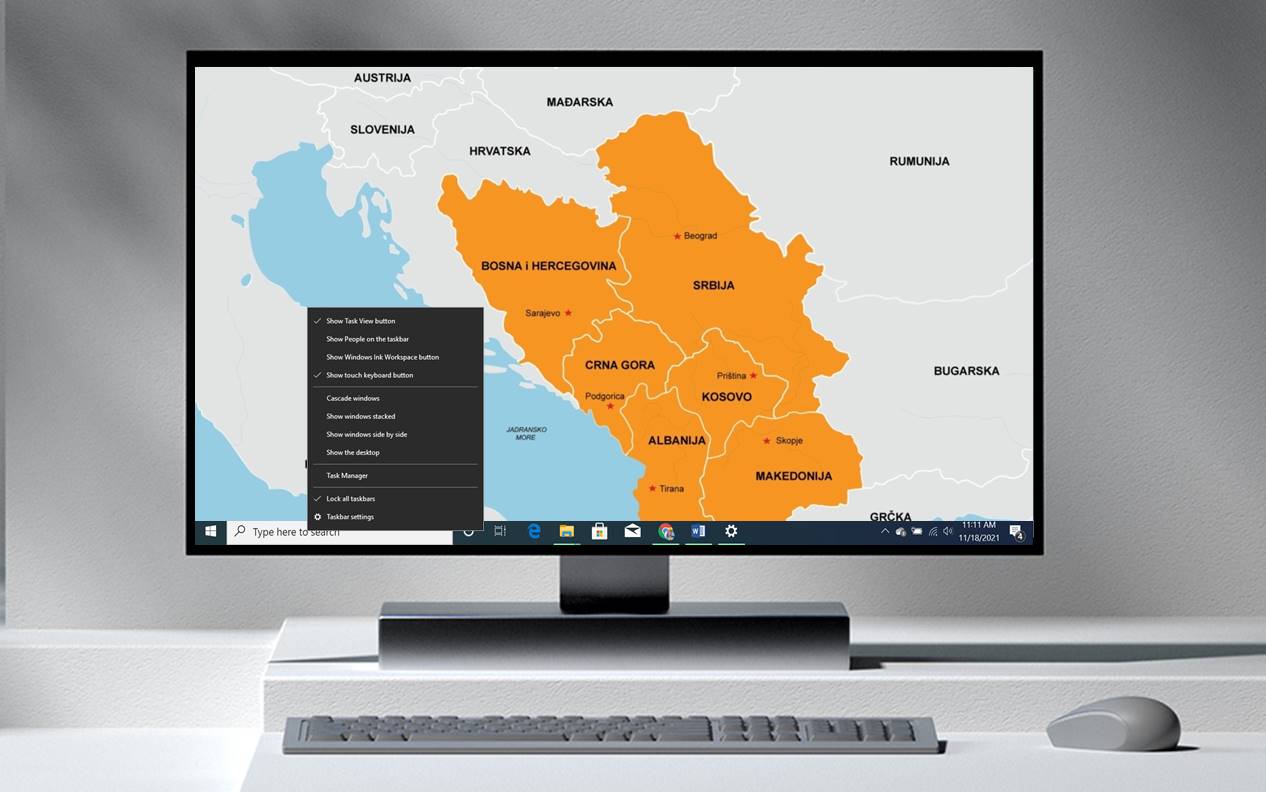Website and database crashes will represent only one of the measuring units that demonstrate the technological and other backwardness of any infrastructure, an infrastructure whose Administrators we vote for every four years or so.

Voja Žanetić
The complex story of cyber security – and that’s what we’re dealing with this week – has to start somewhere. So let’s start, for example, from Arvind Krishna, the lesser-known CEO of IBM. In May of this year, Mr. Krishna said that his company will offer the world thousands of quantum computers for sale by 2025, which is less than three years from now. Current available hardware would require planet-sized devices to solve some of the computing problems these machines will be able to handle. It seems, therefore, that the technology will advance.
Let’s come back from the distant year 2025 to today. The facial recognition company Clearview AI announced that it is currently collecting 100 billion photographs of human faces, which will be stored in their dedicated database. The desired result of this operation is, I quote, “that everyone in the world can be identified”. End quote. It looks like surveillance will be advancing too, oh joy.
So, that is the situation in the big wide world, for the sake of an introduction.
Now let’s run over to our Vicinity; there is technological progress there as well.
* * * * *
Every now and then over past few months we heard the same news about an attack on a digital branch of a state institution in this region – the variable was the date of the attack and the name of the institution. In the rare case of having any further information about it, we’d hear the country from which the attack is suspected to have taken place. Which, by the way, means that either the journalists or the attacked institutions do not have an awareness of the fact that you can legally subscribe to services that can place you virtually anywhere in the world for 11 dollars a month. It costs the same – whether you watch porn or attack the website of a ministry. And it’s worth it.
What we don’t hear in the news because very little is known about it, is the unique technological infrastructure which is the enabling foundation for any hacker attack on an average Balkan country. It is a state-of-the-art platform called “Tender 2.0”, on which the majority of regional state institutions rest. Unlike typical computer technology that rests on the bit, a binary digit of ones and zeros, “Tender 2.0” is based on bribe. And bribes enable ones and many zeros that are given and received in tenders for public procurement, after which there is an informational exchange; that is, an exchange of information about the conditions for getting the job. “Tender 2.0” is the successor of the “Tender 1.0” platform, the only difference is that the bribe is not given to one person, but also to the political party that person belongs to.
In that sense, the so-called “hacking” of state websites is not an attack, but a durability test for the software created with the help of “Tender 2.0”. If only we were so lucky that we could see construction jobs, marketing services and thousands of other things that the government buys like it buys websites, be hacked – then we would also know a little something about the quality of everything that the institutions marketed or sold. But sadly hackers don’t attack roads or farmland or whatever else. Technology has not advanced that much.
* * * * *
And so…site and database crashes will represent only one of the measuring units that demonstrate the technological and other backwardness of any infrastructure, an infrastructure whose Administrators we vote for every four years or so. Cyber security – like any other form of security of what is communal and entrusted to our Administrators – is like security of a cabbage guarded by goats or cheese guarded by mice. Unlike the distant wide world, which the less well-known Krishna from the beginning of this column is leading towards the future, even a far better-known Krishna couldn’t help us.
And we don’t even need that facial recognition software, we can just look in the mirror; so let’s identify who will suffer the consequences.
In cyber and any other vicinity.



Leave A Comment